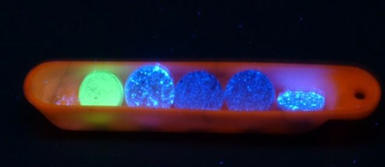Target level of study
Master's degree
Training structure
Faculty of Science
Language(s) of instruction
French
Presentation
The Master's degree in Energy at the University of Montpellier is a multidisciplinary program launched in 2011, offering two tracks for initial training and one track for work-study programs.
Seven departments of the Faculty of Science participate in this program, which is structured around four pillars:
- Network management
- Source and resource management
- Energy storage
- Energy conversion
Objectives
The Master's in Energy aims to train cross-functional project managers in the field of energy, capable of responding to questions raised by local authorities and businesses regarding resource choices and energy mix management. It also aims to train executives capable of managing the various research/development and/or organizational aspects of projects related to energy resource management, energy conversion, and energy storage.
Know-how and skills
Graduates are capable of successfully carrying out the tasks assigned to a manager in research, development, or project management in a company, academic laboratory, or local government. The knowledge and skills acquired will enable them to:
- Work within a multidisciplinary team covering a wide range of fundamental and applied sciences
- Work in a multidisciplinary team on energy management, storage, or conversion
- Implement experimental approaches
- Analyze how processes work to diagnose problems and suggest changes, for example, to improve energy efficiency.
- Innovate by proposing research and development avenues leading to the development of new devices related to energy conversion and storage issues.
They will have acquired the following cross-disciplinary skills, enabling them to quickly integrate into the professional environment:
- Ability to work in an international environment
- Working independently: setting priorities, managing time,
- Working as a team: integrating, positioning yourself, collaborating
- Communicate: write clearly, prepare appropriate communication materials,
- Speaking in front of a group and commenting on materials.
Program
Select a program
Energy Management, Sources, Storage, and Conversion (G2Sco)
The Master's degree in Energy Management, Sources, Storage, and Conversion (G2SCO) covers all topics related to energy:
- Energy and societal challenges, changing needs, energy mix management, energy transition.
- Energy efficiency.
- Issues relating to energy sources and resources (fossil fuels, nuclear, unconventional) and methods of energy production (biological, chemical, physical), with particular emphasis on renewable resources (biomass, geothermal, wind, solar, tidal and hydraulic energy).
- Conversion systems, energy storage, and energy carriers.
The training also includes lessons on issues related to waste reprocessing (nuclear, CO2 sequestration) as well as training in project management, innovation, and technology transfer.
Renewable Energy and Network Management (GREEN) - Apprenticeship
The GREEN program trains students to tackle challenges related to profound changes in energy production and consumption patterns. The topics studied in the GREEN program will relate to multi-source/multi-load networks:
- Integration of local fluctuating energy production sources (solar or wind)
-Development of optimal energy management strategies and monitoring methods.
- Storage issues.
- Self-consumption.
This program is exclusively open to work-study students.
Materials for Low-Carbon Energy (MatEBaC)
The Materials for Low-Carbon Energy (MatEBaC) program trains executives and engineers to design, develop, characterize, and optimize materials and devices for low-carbon energy sectors. The Master's program is based on research training and draws on an excellent scientific environment bringing together four major institutes: ICGM, IEM, ICSM, and IES, which are heavily involved in key regional challenges (photovoltaics – PV-Star, hydrogen – RHYO).
The program offers a multidisciplinary approach covering:
• the design and synthesis of materials;
• the study of their mechanical, thermal, optical, and electrical properties;
• the manufacture of components and devices;
• life cycle analysis, recycling, and sustainability.
Admission
Admission requirements
Applications can be submitted on the following platforms:
French & European students:
- For the M1, follow the "My Master's Degree" procedure on the website: https://www.monmaster.gouv.fr/
- For M2 students, applicants must submit their application via the e-candidat application: https://candidature.umontpellier.fr/candidature



